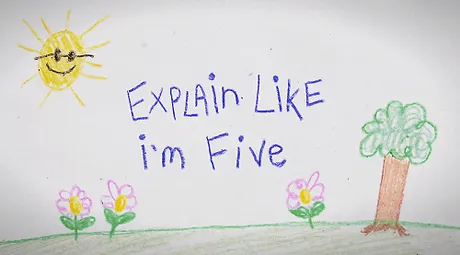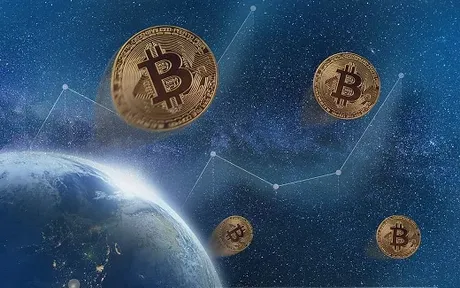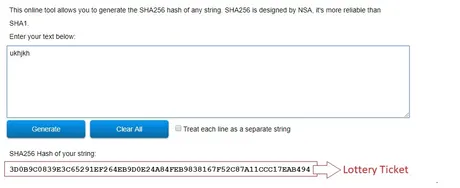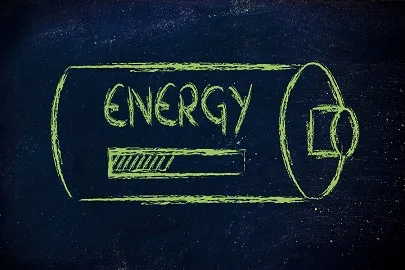
[ELI5: POW (Introduction)](https://steemit.com/pow/@edicted/eli5-pow-introduction)
Most people you talk to on the street do not understand how "Internet Money" could possibly have value. We try to point at Proof-Of-Work as the explanation, but it's often too complicated and the mind rejects the idea. Too much information too soon. After many many attempts of explaining POW to people who know nothing about crypto, the following is how I've refined and simplified the idea.
Proof-Of-Work
When anyone wants to make a transaction on the Bitcoin network they must broadcast their intent to the Internet so that Bitcoin miners can see it. At any given time there are thousands of unconfirmed Bitcoin transactions floating out there waiting to be confirmed by miners.

Bitcoin miners scoop up these transactions and mash them into a block. The goal of any Bitcoin miner is to put their block on the blockchain; confirming all the transactions. If someone puts their block on the chain, they receive a very big block reward (currently 12.5 Bitcoin). However, not just anyone can put their block on the chain. They have to win the lottery first. This lottery is the foundation of Proof-of-Work.

Bitcoin uses cryptographic hashing algorithm SHA-256; developed by the NSA. It sounds complicated, and it is. This algorithm can be used for many things, including Bitcoin mining. Try it yourself! This website can be used to hash any text using SHA-256:
https://passwordsgenerator.net/sha256-hash-generator/

Humans use the base 10 number system, but computers use base 16 (Hexadecimal). That is what you are seeing here: 64 random hexadecimal characters ranging from 0 to 15 (0, 1, 2, 3, 4, 5, 6, 7, 8, 9, A, B, C, D, E, F).
In order to win the Bitcoin lottery, post your block on the blockchain, and claim your reward (currently worth $78,000), you must produce a lottery ticket that is extremely rare; one that falls under the required difficulty.

How rare is rare? [This website tells us the difficulty is currently 7,019,199,231,177](https://www.bitcoinblockhalf.com/), but what does that mean? It means that Bitcoin blocks must have a certain number of leading zeros in the hash to be considered valid.
This website shows us the hashes of the most recent blocks.

We can see here that it takes a whopping 18 leading zeros on a Bitcoin block hash to win the lottery.
Optional Math Lesson
The chance of one leading zero is 1/16^1 = 1/16
The chance of two leading zeros is 1/16^2 = 1/256
The chance of 18 leading zeros is 1/16^18 = 1/4,722,366,482,869,645,213,696.
On average, it will take 4.7 sextillion hashes (21 zeros) to mine a single block.
(Assuming a difficulty of 18 leading zeros.)
To confirm that this number makes sense: We can see that the Bitcoin network is producing 48.61 Exahashes per second (18 zeros). The Bitcoin community changes the difficulty every 2 weeks and tries to peg the average block time to 10 minutes. 10 minutes is 600 seconds. 48.61 * 600 = 29,166, so the Bitcoin network is pumping out 29 sextillion hashes every 10 minutes. This means the difficulty is actually set a little bit higher than 18 zeros, but also less than 19. A difficulty of 19 leading zeros would assume 75 sextillion hashes every 10 minutes.
(Math lesson completed)

Energy consumption
It's not hard to see why skeptics of Bitcoin say that it wastes energy. The amount of energy being used in the competitive Bitcoin hash lottery trumps the output of many small countries. However, this energy expenditure is a necessary evil because it is the foundation of what gives Bitcoin value in the first place. As renewable energy takes the place of pollution-based energy this argument will be all but squashed.
Unlike the Federal Reserve and other central banks, the Bitcoin community has a massive incentive to keep their promises and ensure that Bitcoin inflation acts the way the community has decided it should act (consensus). No one in the Bitcoin community will allow anyone else to generate Bitcoin unless they follow these rules of Proof-Of-Work. Doing so would devalue the currency and the entire community would lose money. Even worse, the community would lose reputation and Bitcoin would be devalued even further.

This is why Bitcoin is a more trustworthy currency than anything a central bank or government has to offer. A centralized authority can print money out of thin air whenever they deem it necessary and, in the process, devalue every other dollar in the ecosystem. This is how countries like Venezuela experience a death-spiral of inflation that bombs their entire economy: the government simply keeps printing more money and no one can stop them.
This is not the case with cryptocurrency. This is why crypto is so valuable: you don't have to trust a central authority to have your best interest in mind. These communities regulate themselves for the good of everyone in them.
Analysis
This explanation of proof-of-work was still a little bit more complex than I wanted it to be. I made the math part optional because it can be a big turn-off to the average person. I feel like this ELI5 post starts well and starts to go down a rabbit hole at the end; such is crypto.
The thing I've had the best experience with is hammering home the lottery analogy. Everyone knows what a lottery is and it shows how Bitcoin can't just be, "Created out of thin air." In fact, if anything's created out of thin air, it's fiat.
Dive Deeper
Understanding POW The Blockchain Is Backed By This The Blockchain Is A Safety Net The Blockchain is not Speculative Blockchain Competition is Projected Cryptocurrency To NoCurrency Ultimate Blockchains Open Source Decentralized Cooperative Capitalism Blockchain Wild West Gold Rush ASIC Mining Rigs Quadrillion Dollar Market Cap USD Is Not A Real Currency Future of Decentralzation The Real Bubble Is Not Crypto
Return from ELI5: POW to edicted's Web3 Blog
